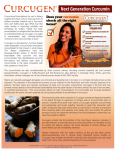Microbiome firm A-Mansia raise €13m to develop bug-based supplement

The supplement uses the Akkermansia muciniphila bacterial species that in clinical trials has shown the ability to reduce the effects of obesity and diabetes in mice.
Set for release in 2021, the supplement’s creators believe these benefits could apply to humans as these ‘lifestyle’ conditions continue to increase in numbers, particularly in Western Europe.
According to Dr Patrice Cani, professor at the Catholic University of Louvain (UCL) in Belgium, the discovery presents “a unique opportunity to finally make available to all a scientific discovery in the laboratories of the UCL".
“Major innovations likely to provide concrete answers to the problems of our society are often linked to ambitious long-term fundamental research. This new spin-off from UCL is a good proof,” added Jean-Christophe Renauld, UCL’s research director.
UCL and Wageningen Uni spin-off
A-Mansia a spin-off firm arising from joint research conducted by the UCL and Wageningen University, have described the first human exploratory study in volunteers conducted between 2015 and February 2018.
Intermediate results, which confirmed that the bacterium was well tolerated, follows research in 2015, where active components isolated from A. muciniphila were able to replicate the beneficial properties associated with the administration of the whole bacterium.
These results have led to the €13m funding, led by French investment fund Seventure Partners, which specialises in the microbiome field.
Other investment partners active in the venture include the Fonds Vives II (University of Louvain), financial consultants Regional Investment Company of Wallonia (SRIW) and Belgium venture capitalists Nivelinvest.
A-Mansia said the finance raised would create 15 direct jobs by 2020, in addition to any indirect jobs.
The spin-off’s headquarters are to be based in Belgium and R&D activities will be conducted in part in University of Louvain (UCL) and Wageningen University laboratories.
As well as the development of an A. muciniphila nutritional supplement, the funds will also go towards the construction of a pharma research pipeline based on active component isolated from A. muciniphila.
Accidental discovery
“The discovery as such happened quite fortuitously,” explained Dr Cani. “It was observed that this bacterium was decreasing in people who were obese or had type 2 diabetes.
“We developed it and tested it in the laboratory on animals. It was shown to have potentially interesting effects in particular by maintaining normal physiological functions, such as slowing down the rate of weight gain or decreasing plasma cholesterol. “


















